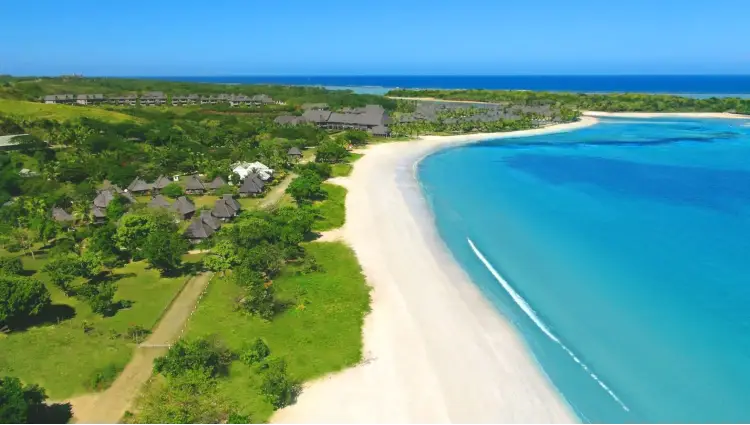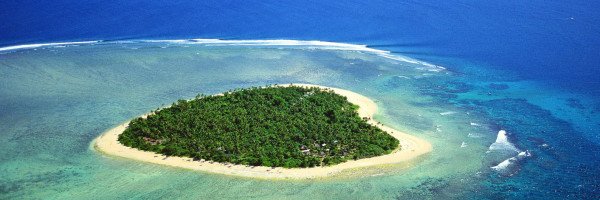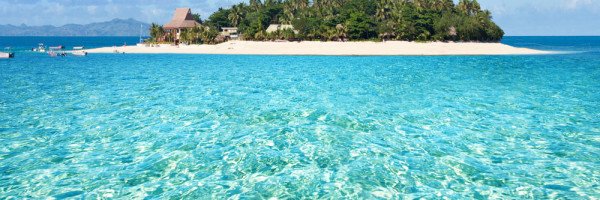Exploring the Rich Biodiversity of Fiji’s Eco Parks
Fiji’s eco parks are a treasure trove of unique wildlife encounters, making them an ideal destination for families looking for adventure. With over 1,500 species of plants and animals, many of which are endemic to the islands, the biodiversity is truly remarkable. Eco parks such as the Kula Eco Park offer guided tours where families can learn about the local flora and fauna. Children will be thrilled to spot colorful birds like the Fiji parrot and the rare Fijian crested iguana. To make this experience even more interactive, many parks provide educational programs that allow kids to participate in conservation efforts, fostering a sense of responsibility towards nature. For families visiting from New Zealand, consider incorporating local wildlife into your discussions about conservation back home, drawing parallels between the native species of Fiji and those in New Zealand.Hands-On Experiences: Wildlife Rehabilitation Programs
One of the most memorable family activities in Fiji’s eco parks is participating in wildlife rehabilitation programs. Many reserves, such as the Fiji Islands Wildlife Sanctuary, offer opportunities for families to engage directly with animals in need. Families can help care for injured birds and reptiles, learning about the rehabilitation process while contributing to the well-being of the wildlife. These hands-on experiences not only create lasting memories but also educate children about the importance of protecting endangered species. New Zealand families can share their experiences with local wildlife organizations and discuss how similar initiatives can be implemented in their own communities, promoting a global awareness of conservation efforts.Cultural Connections: Indigenous Wildlife and Traditional Practices
Fiji’s eco parks are more than just places to observe wildlife; they are also venues for cultural engagement. Many parks offer guided tours that include indigenous stories and practices related to local wildlife. Families can learn about the traditional uses of plants and animals in Fijian culture, enriching their understanding of the environment. Incorporating cultural lessons into wildlife encounters allows children to appreciate the interconnectedness of nature and human life. Families from New Zealand can draw comparisons with Māori traditions surrounding native species, fostering discussions about cultural respect and environmental stewardship. Visiting the Fiji Islands offers a unique opportunity to explore these cultural narratives while enjoying family fun in a breathtaking setting.Adventure Activities: Zip-lining and Wildlife Watching
For families seeking adrenaline-pumping activities, Fiji’s eco parks offer thrilling zip-lining experiences that provide a bird’s eye view of the stunning landscapes and wildlife below. Parks like Zip Fiji not only cater to adventure seekers but also integrate wildlife observations into their tours, allowing families to spot native species from a unique perspective. This blend of adventure and education makes for an unforgettable day out. Families from New Zealand can compare these experiences to the ziplines and tree-top walks found in their own national parks, discussing the different ecosystems and wildlife they encounter in both countries. The excitement of zip-lining through a tropical rainforest while spotting exotic birds creates lasting family memories and encourages a love for nature.Night Tours: Discovering Fiji’s Nocturnal Wildlife
Many eco parks in Fiji offer night tours that unveil the mysteries of the island’s nocturnal wildlife. Families can embark on guided night walks, where they will encounter creatures such as fruit bats, geckos, and nocturnal birds. These tours provide a unique perspective on the ecosystem and are perfect for budding naturalists. Participating in a night tour allows families to learn about the behaviors of nocturnal species and how they adapt to their environment. For families visiting from New Zealand, this experience can spark conversations about the differences between day and night wildlife in both regions, enhancing the educational aspect of their trip. Check out the offerings at Fiji Islands eco parks for unforgettable night adventures.Marine Life Encounters: Snorkeling in Coral Reefs
Fiji is renowned for its spectacular coral reefs and marine biodiversity. Family-friendly eco parks often provide snorkeling excursions where families can explore vibrant underwater ecosystems teeming with life. Locations such as the Fiji Islands Marine Reserve are perfect for families to discover colorful fish, sea turtles, and even the occasional reef shark. Snorkeling not only offers an exciting way to connect with marine life but also provides educational opportunities on marine conservation. Families from New Zealand can discuss the importance of protecting their own coastal ecosystems, fostering a commitment to preserving marine environments. Engaging in these activities helps children understand the significance of biodiversity while enjoying fiji family fun.Creating Lasting Memories: Wildlife Photography Workshops
For families looking to capture their unique wildlife encounters, many eco parks in Fiji offer photography workshops tailored for all ages. These workshops teach families how to photograph the stunning landscapes and diverse wildlife, ensuring that memories of their adventures are beautifully preserved. Families can learn from professional photographers about the best techniques for capturing wildlife in action. This experience not only enhances photography skills but also encourages families to spend quality time together outdoors. New Zealand families can take inspiration from their wildlife photography to create projects back home, sharing their adventures and discussing the importance of wildlife conservation. Visiting the Fiji Islands provides a perfect backdrop for these creative endeavors, blending learning and fun in an unforgettable family vacation.FAQs
What types of wildlife can we expect to see in Fiji’s eco parks and reserves?
In Fiji’s eco parks and reserves, families can encounter a variety of unique wildlife including colorful tropical birds, rare reptiles, and diverse marine life. Many parks also feature endemic species that are not found anywhere else in the world, making it an exciting experience for nature lovers.
Are there guided tours available for families visiting eco parks in Fiji?
Yes, many eco parks in Fiji offer guided tours that are perfect for families. These tours are led by knowledgeable guides who can provide insights into the local wildlife, flora, and conservation efforts, enhancing the educational experience for both kids and adults.
What family-friendly activities can we participate in at eco parks and reserves?
Families can enjoy a range of activities at Fiji’s eco parks, including wildlife watching, nature walks, snorkeling, and interactive exhibits. Many parks also have designated areas for children to engage in educational games and hands-on experiences, ensuring a fun-filled day for everyone.
Is it safe for children to explore the wildlife in these parks?
Yes, it is generally safe for children to explore the wildlife in Fiji’s eco parks, as they are designed with family safety in mind. Parks have well-marked paths, designated viewing areas, and trained staff to ensure that all encounters with wildlife are safe and respectful.
What is the best time of year to visit Fiji for wildlife encounters?
The best time to visit Fiji for wildlife encounters is during the dry season, which runs from May to October. During this time, the weather is generally more pleasant, and wildlife is often more active, making it ideal for family fun and exploration.
Are there any conservation programs that families can participate in?
Absolutely! Many eco parks in Fiji offer conservation programs where families can volunteer or participate in activities such as tree planting, wildlife monitoring, and beach clean-ups. These programs not only provide hands-on experience but also teach children the importance of protecting the environment.
How can we ensure a respectful wildlife encounter during our visit?
To ensure a respectful wildlife encounter, families should follow park guidelines, maintain a safe distance from animals, and avoid feeding or touching wildlife. Educating children about the importance of conservation and the role of each species in the ecosystem will enhance their experience and foster respect for nature.
References
- Fiji Islands Official Tourism Site – A comprehensive resource for discovering Fiji’s eco parks and reserves, including family-friendly wildlife activities.
- Ecotourism Australia – An informative site that highlights eco-friendly travel experiences, including wildlife encounters in various natural reserves.
- Fiji Travel – Offers insights into various attractions in Fiji, focusing on eco parks and unique wildlife experiences suitable for families.
- The Wildlife Society – A professional organization dedicated to wildlife conservation that provides resources and information on family-oriented wildlife activities globally, including Fiji.
- National Geographic – Renowned for its rich content on wildlife and nature, National Geographic features articles and guides about eco tourism and family activities in natural reserves like those in Fiji.







